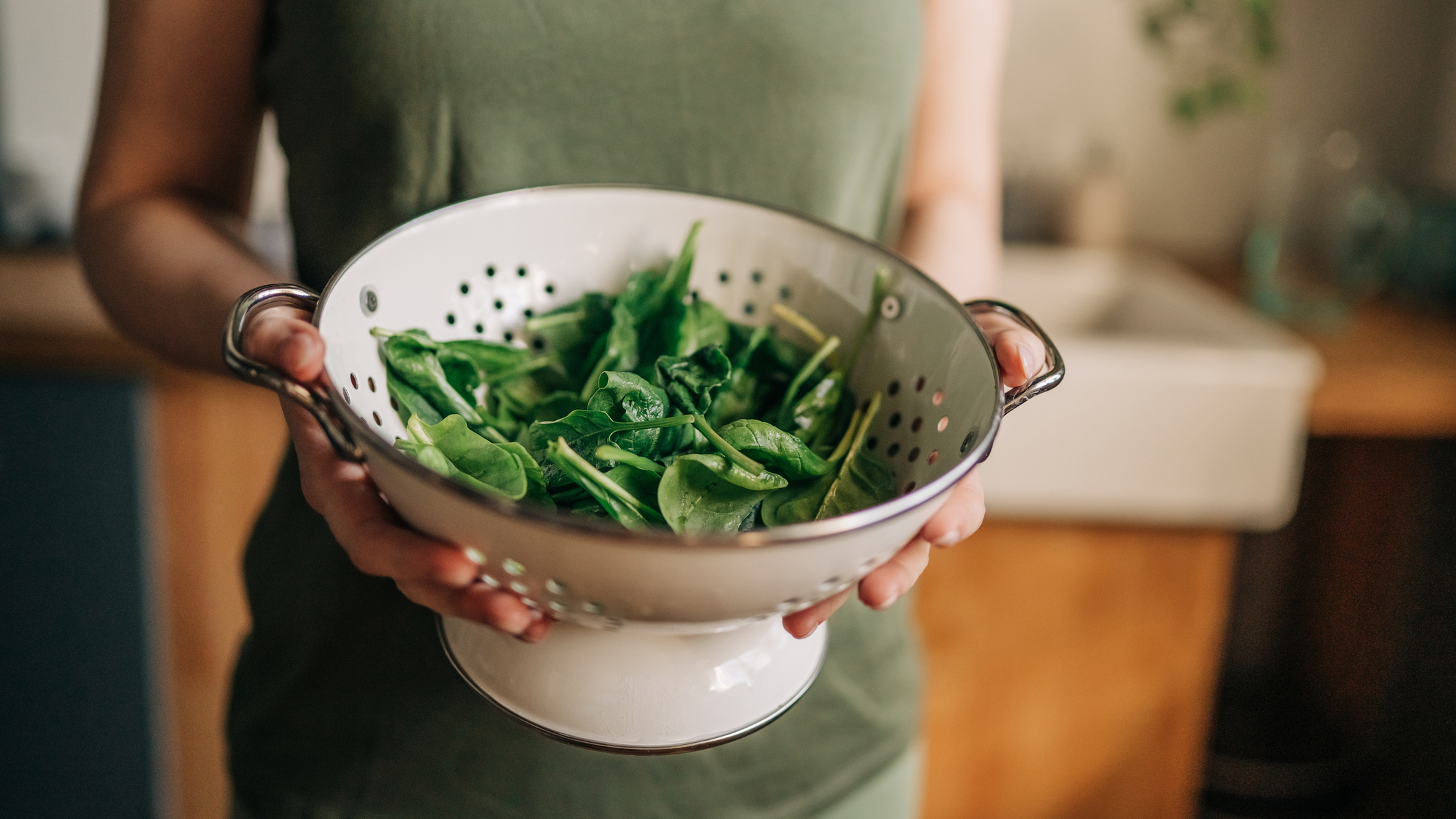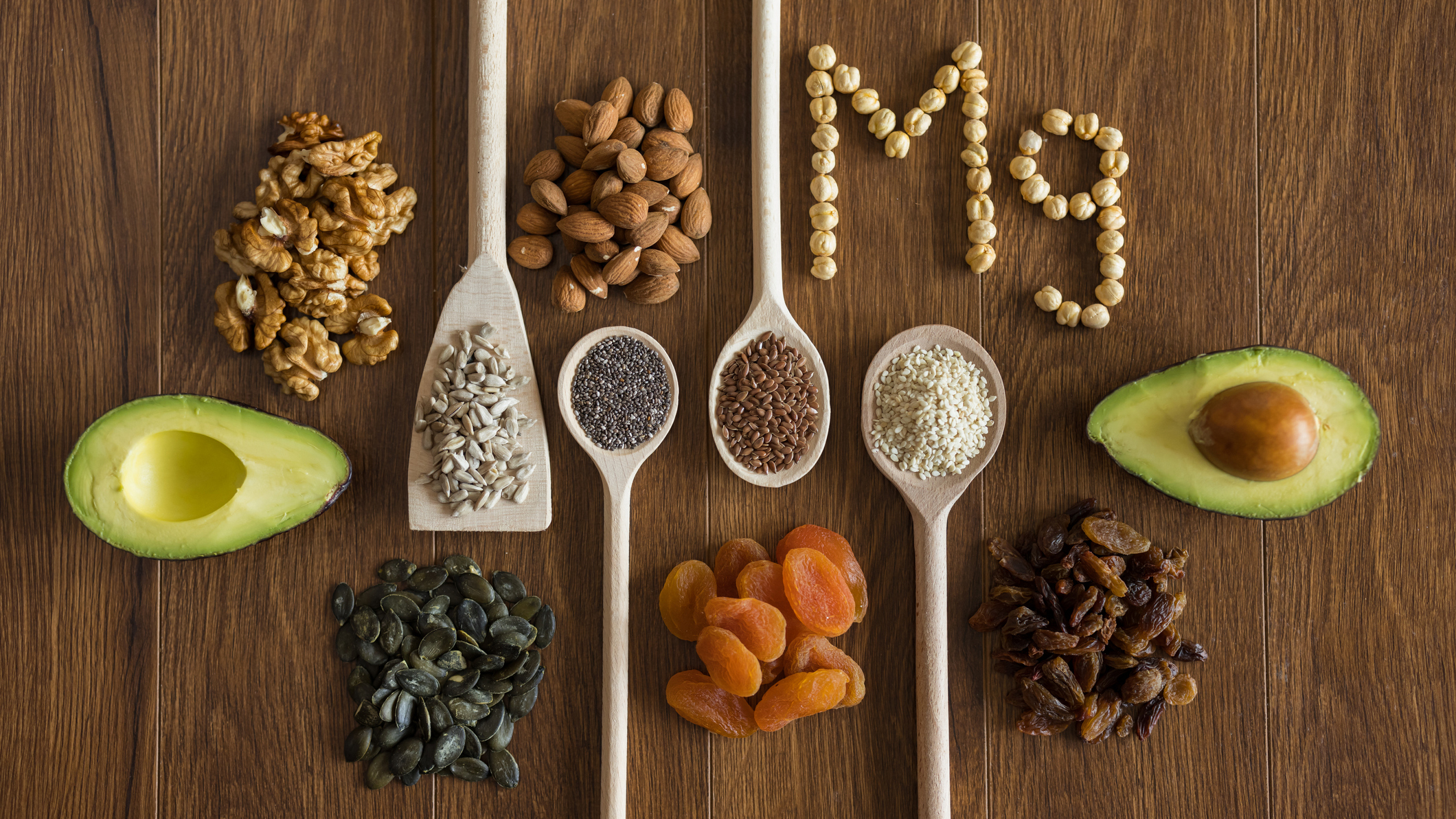I take magnesium for sleep, but can a varied diet deliver the same results? I asked three experts
I’m considering ditching my magnesium glycinate supplement after adding more seeds, greens and beans to my diet. Here’s why…

I started taking magnesium glycinate when I was in the throes of insomnia. I wasn’t in the right headspace for loading up my plate with magnesium rich foods back then, so supplements filled the gap.
Taking magnesium has since become part of my nighttime routine – a deeply ingrained habit. But after recently adding more healthy foods to my diet I’m thinking of ditching my magnesium glycinate supplement altogether.
I spoke to three registered dieticians to gain a better understanding of magnesium supplements versus magnesium rich foods for sleep. Here’s what they told me…
Magnesium and sleep: What’s the link?
Magnesium is a vital mineral that plays a key role in helping you to relax, in addition to regulating your circadian rhythm (sleep-wake cycle).
As Dr Leah Kaylor, Ph.D. MSCP explains: “Magnesium supports sleep by regulating melatonin and enhancing GABA (calming neurotransmitter).
“Magnesium can influence inflammation and cortisol, both of which can disrupt sleep.”

So magnesium is important for sleep (and endless other functions), but how much does the average person need? According to the NIH Office of Dietary Supplements, men need around 400-420mg of magnesium a day, and women need 310-350mg a day.
Get instant access to breaking news, the hottest reviews, great deals and helpful tips.
However there are other factors to consider, says Elizabeth Huggins, Registered Dietician at Hilton Head Health Wellness Resort and Spa: “The ideal daily intake depends on your age, sex, and health conditions, including pregnancy.”
“Supplement only when clinically indicated,” advises Dr Kaylor.
Can you get enough magnesium from food alone?
I’ve been doing a lot of research into magnesium rich foods as I prepare to ditch my supplement, and the good news is there are lots of options to pick from.
“Nuts, specifically almonds, cashews and peanuts, chia seeds and pumpkin seeds are high in magnesium.” Explains Huggins, RDN.
Individuals can meet their magnesium needs by consuming magnesium rich foods daily and using dietary supplements to fill dietary gaps
Holiday Durham, PhD, MS, RD
“Other great choices for a source of magnesium include leafy greens, whole grains, legumes and beans. Certain fatty fish such as salmon or halibut also contain magnesium.”
“It is possible to meet magnesium needs through diet; however, many people don't get the recommended amount.” Dr Kaylor adds.
As for me, I’ve been adding more pumpkin seeds and black beans to my diet (I’ve always eaten spinach and almonds).

Which foods are rich in magnesium?
“Individuals can meet their magnesium needs by consuming magnesium-rich foods daily and by using dietary supplements to fill dietary gaps.” Says Holiday Durham, PhD, MS, Registered Dietitian at Amway.
Here’s a breakdown of how much magnesium is in each of the most popular recommended foods, according to the USDA’s FoodCentral Database:
- Pumpkin seeds – 168mg per 1 cup
- Cooked spinach – 156.6mg per 1 cup
- Black beans – 120mg per 1 cup
- Quinoa – 118mg per 1 cup
- Chia seeds – 95mg per 1 oz
- Whole grain rice – 84mg per 1 cup
- Almonds – 76mg per 1 oz (23 whole kernels)
- Cashews – 74mg per 1 oz
- Dark chocolate – 64.6mg per 1oz (roughly one square)
- Atlantic salmon – 53mg per 0.5 fillet
Which type of magnesium is better?
I’ve been supplementing my diet with magnesium glycinate, and this is the one experts seem to favour too. “Evidence suggests that magnesium glycinate is one form of magnesium that the body may more readily absorb,” Holiday Durham, RD, tells me.
Dr Kaylor agrees: “Magnesium glycinate is the least likely of the magnesium family to cause GI distress.”

According to registered dietician Huggins, GI distress can include, “nausea, diarrhea and abdominal cramping. Magnesium supplements also have the potential to interfere with medications (including cholesterol lowering statins.) There is also a risk in people that have kidney disease.”
If you do supplement, don’t expect an immediate effect. I only noticed a difference in my sleep after a couple of weeks of taking magnesium glycinate.
“Its effects tend to be gradual, typically becoming noticeable after one to two weeks of consistent intake.” Explains Dr Kaylor. “In the Abbasi et al. trial, improvements in sleep were seen after eight weeks of daily intake.”
Is magnesium a silver bullet for better sleep?
Personally, I have found success with taking a regular magnesium glycinate supplement when I’ve had trouble sleeping in the past.
But around the time I started taking it I was also practising better sleep hygiene, one of the most powerful tools I learned for easing insomnia.
“As a sleep expert, magnesium can be a small part of a much larger plan to develop better sleep habits,” agrees Dr Kaylor. “[Magnesium] is not a magic bullet. Its effects are typically modest at best.
“Instead people should focus on a solid wind down routine, consistency in sleep/wake times, and stress management.”

Elizabeth Huggins, RDN, also recommends focusing on the whole picture: “There are a number of factors that influence sleep quality so it’s important to take a holistic approach.
“A balanced diet that includes foods with adequate amounts of magnesium are part of the approach to help promote better sleep.
”Some studies have found that magnesium intake can help us sleep better, but there are contradictory findings. Ultimately, more research is needed to learn more about the interaction of how and who it might help.”
Disclaimer: This article is for entertainment purposes only. For advice on supplements and following a healthy diet, please speak to your doctor.

Claire is a Certified Sleep Science Coach and the Managing Editor of Sleep at Tom's Guide. She curates our mattress guides and oversees our rigorous mattress testing procedures. Claire has over 16 years' product review experience and is connected to a wealth of globally renowned sleep experts including mattress designers and buyers, neuroscientists, and doctors of sleep medicine. As the Managing Editor of our Sleep and Mattress Team, Claire is responsible for all mattress and sleep content published on Tom’s Guide and is our expert on Saatva, DreamCloud, and Nectar mattresses. Claire is also certified to advise people on how to choose a mattress that suits their needs and budget, as well as helping them to create a nighttime routine and bedroom environment that helps them sleep better.
You must confirm your public display name before commenting
Please logout and then login again, you will then be prompted to enter your display name.
 Club Benefits
Club Benefits





